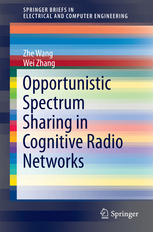

Most ebook files are in PDF format, so you can easily read them using various software such as Foxit Reader or directly on the Google Chrome browser.
Some ebook files are released by publishers in other formats such as .awz, .mobi, .epub, .fb2, etc. You may need to install specific software to read these formats on mobile/PC, such as Calibre.
Please read the tutorial at this link: https://ebookbell.com/faq
We offer FREE conversion to the popular formats you request; however, this may take some time. Therefore, right after payment, please email us, and we will try to provide the service as quickly as possible.
For some exceptional file formats or broken links (if any), please refrain from opening any disputes. Instead, email us first, and we will try to assist within a maximum of 6 hours.
EbookBell Team

0.0
0 reviewsThis Springer Brief investigates spectrum sharing with limited channel feedback in various cognitive radio systems, such as point-to-point, broadcast scheduling and ad-hoc networks. The design aim is to optimally allocate the secondary resources to improve the throughput of secondary users while maintaining a certain quality of service for primary users. The analytical results of optimal resource allocation are derived via optimization theory and are verified by the numerical results. The results demonstrate the secondary performance is significantly improved by limited feedback and is further improved by more feedback bits, more secondary receivers and more primary side information.